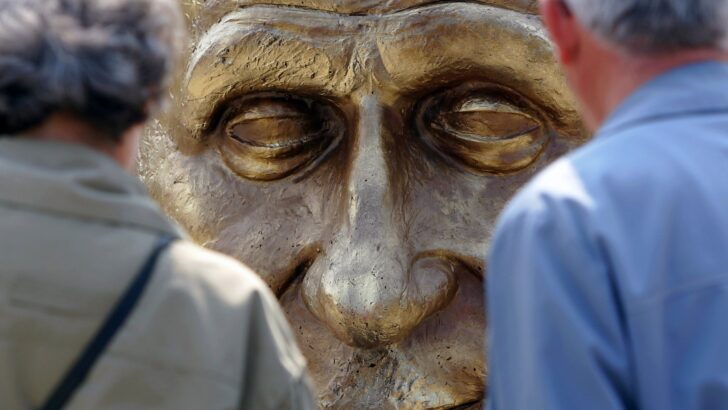Two are currently being canonised; the third was good for political miracles throughout his life. The united Europe, whose spiritual strength is once again in demand, rests on the shoulders of men of Christian conviction.
The existence of the EU, winner of the Nobel Peace Prize, can be traced back to the foresight of Christian and humanist politicians. Three men in particular should be mentioned when it comes to the vision of a united Europe: the Italian Alcide de Gasperi (1881-1954), the German Konrad Adenauer (1876-1967) and the Frenchman Robert Schuman (1886-1963). The latter was even awarded the honourary title of “Father of Europe” by the EU Parliament.
As early as the 1920s, before the traumatic experience of fascism and war, these three established a network of contacts with Christian-democratic-minded politicians from all over Europe. These relationships were to become the nucleus of European unification after 1945.
All three came from politically torn border regions: Adenauer from the Rhineland with its separatist tendencies and history of French occupation. Luxembourg-born Schuman, who settled in Alsace-Lorraine as a border crosser between the German army and the French National Assembly. And de Gasperi, who came from the Trento region, which initially belonged to the Habsburg Empire as “Welsch-Tirol” and became part of Italy in 1920.
Prison or resistance
All three became lawyers and held political offices, which they lost as a result of fascism. All three went to prison, into the resistance or into internal emigration – until their time came in 1945. When Adenauer, de Gasperi and Schuman went on to enjoy stellar political careers after the war, founding Christian Democratic parties and forming governments, their uncompromising stance against dictatorships stood them in good stead.
What they had in common was a scepticism towards an exaggeration of the national and an interpretation of the 20th century that was equally opposed to dictatorship, liberalism and socialism. The historical image of a Latin-Carolingian West united in Christianity, as it were, made it easier for the Christian democrats of the “zero hour” to accept the division of Europe and devote themselves entirely to Western integration.
Saints in street clothes
Schuman, de Gasperi and Adenauer were also referred to as “Europe’s Holy Trinity”: Saints in street suits. They stood for the supranational principle and for a Christian view of humanity – without allowing themselves to be taken over by the church on political issues.
Beatification processes have been underway for de Gasperi and Schuman since 1993 and 2004 respectively, but not for Adenauer. Reference is made to the hard line with which the shirt-sleeved Rhenish Catholic maltreated his political opponents – as if such edgy saints of the Middle Ages as Bernhard von Clairvaux or Charlemagne had not done the same or even more harshly.


 People look at a sculpture of Robert Schuman, France's former foreign minister, at a park in Bucharest, Romania, in this May 9, 2006, file photo. Pope Francis has advanced the sainthood cause of Schuman, who helped lay the groundwork for the European Union. (CNS photo/Bogdan Cristel, Reuters)
People look at a sculpture of Robert Schuman, France's former foreign minister, at a park in Bucharest, Romania, in this May 9, 2006, file photo. Pope Francis has advanced the sainthood cause of Schuman, who helped lay the groundwork for the European Union. (CNS photo/Bogdan Cristel, Reuters) 